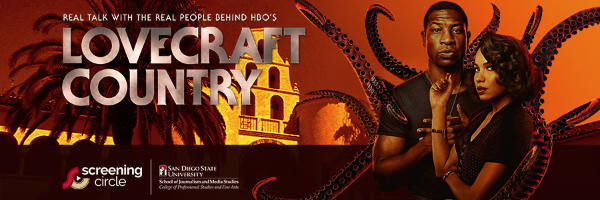Screening Circle: Engaging Students in Conversation About Race

As storytellers, the School of Journalism and Media Studies at San Diego State University understands how sharing stories can be a conduit for change. The school’s diversity, equity and inclusion committee created the Screening Circle as a forum for critical and civil exchange of ideas.
“The topics covered are not easy to discuss, but those difficult moments are when voices are heard and changes are made,” said the School of JMS director, Dr. Temple Northup.
“Our goal is open dialogue about the crisis we’re facing right now and empower our students to understand their roles as storytellers in the media. We want our students to understand how all of them are catalysts for changing race and identity representation in the media.”
Throughout the three-part series, more than 215 participants gathered in a space of comfort and honesty to face difficult conversations brought to the screen on the HBO show “Lovecraft Country.”
Attendees opened up to moderators to discuss the extended parallel process model, the glass ceiling effect and other mass communication strategies that can threaten traditionally marginalized groups. At the third event, a few participants were especially vulnerable and emotions were running high.
“When one student shared some difficulties she faced in her interracial relationship, it nearly brought me to tears,” said Gabe Adibe, Screening Circle host and School of JMS graduate student. “That’s the type of vulnerability we encouraged at the events.”
Each Screening Circle featured Hollywood storytellers, many of them being the forces behind “Lovecraft Country.” The show’s musical composer and production designer were some of the professionals who shared captivating insights.
“There are obstacles when stories are told from a single perspective, without diversity,” said Megan Blacher, public relations student. “There’s a need for change and it’s our responsibility as students in media studies to shift the spotlight toward voices and stories that haven’t received the recognition they deserve.”
To take the series beyond conversations, the DEI committee built a curriculum and supplemental Canvas modules around Screening Circle. JMS professors were able to incorporate the series into their own classes, offering course credit for participating.
“The more students we reach and other people that students are connected with, the more support and awareness,” commented Kandyce Lewis, Screening Circle attendee in her Canvas post. “This is how we ignite change.”
The DEI committee and the School of JMS plan to continue unpacking stories of marginalized communities in the media at future Screening Circle events.
The content within this article has been edited by Lizbeth Persons.
